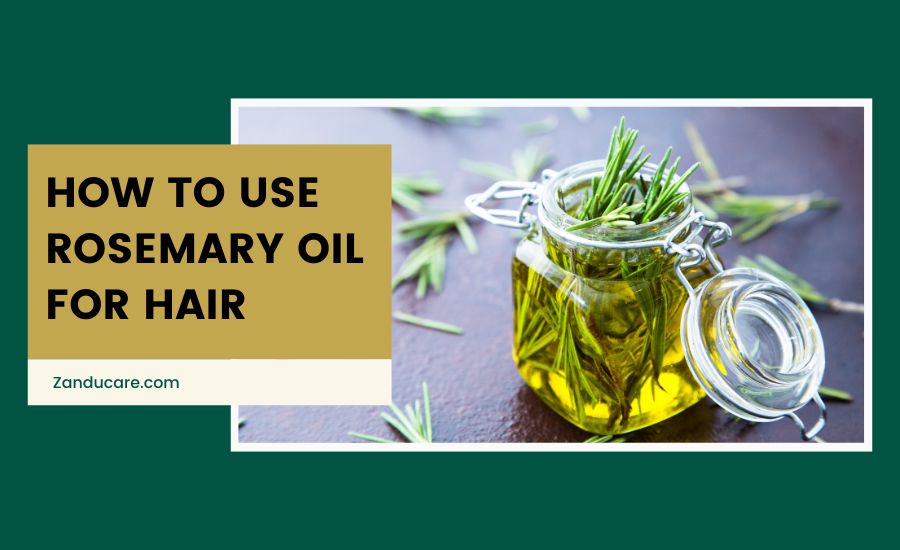
Top Amla Benefits for Hair: A Natural Elixir for Growth and Strength
|
Key insights:
|
Amla, also known as Indian gooseberry, is a small, green fruit used in traditional medicine for centuries. Due to its powerful health benefits, it’s a key ingredient in Ayurvedic treatments in India. This fruit is rich in vitamin C, antioxidants, and other nutrients, which make it a fantastic remedy for various hair-related issues. Amla is highly valued for promoting hair health, as it helps nourish the scalp, strengthens hair roots, and improves hair texture.
|
Did You Know?
|
Amla in Ayurveda and Hair Care
In Ayurveda, Amla is considered a 'Rasayana'—an elixir that promotes youthfulness, boosts health, and improves overall well-being. It balances all three doshas—Vata, Pitta, and Kapha. Amla stimulates hair growth, nourishes the scalp, and enhances hair colour and texture.
Ayurvedic medicine uses Amla in oils, masks, tonics and other preparations for hair care. Amla is believed to penetrate deep into the scalp and follicles to provide vital nutrients that improve circulation and strengthen roots. Massaging the scalp and hair regularly with Amla oil helps boost hair growth.
Nutritional Value of Amla for Hair Health

Here is the table of Amla's nutritional value:
|
Nutrient |
Content in 100g |
|
Energy |
44 kcal |
|
Protein |
0.9 g |
|
Dietary Fibre |
4.3 g |
|
Fat |
0.6 g |
|
Carbohydrates |
10.2 g |
|
Vitamin C |
600-700 mg |
|
Vitamin A |
290 IU |
|
Vitamin B1 |
0.03 mg |
|
Vitamin B2 |
0.08 mg |
|
Vitamin B3 |
0.3 mg |
|
Vitamin B5 |
0.3 mg |
|
Vitamin B6 |
0.08 mg |
|
Vitamin E |
0.37 mg |
|
Calcium |
25 mg |
|
Iron |
0.31 mg |
|
Magnesium |
10 mg |
|
Phosphorus |
27 mg |
|
Potassium |
198 mg |
|
Zinc |
0.12 mg |
Top Amla Benefits for Hair
Regular use of Amla can provide the following hair benefits:
1. Amla Promotes Hair Growth
Amla stimulates blood circulation to hair roots, which boosts growth. It provides nutrients that strengthen follicles and increase the thickness of each hair strand. Amla prevents buildup on the scalp, allowing new growth to occur unhindered.
2. Reduces Hair Fall and Strengthens Roots

Amla contains carotene, iron, antioxidants and vitamin C that strengthen hair follicles and reduce hair fall. It also makes roots stronger to prevent hair loss. The antioxidants remove free radicals that can damage follicles and cause shedding.
3. Prevents Premature Graying
The antioxidants and vitamins in Amla neutralise free radicals that cause oxidative damage to hair cells and produce melanin, the pigment that gives hair its colour. This delays the greying process.
4. Treats Dandruff and Dry Scalp
Amla has anti-inflammatory, anti-fungal and exfoliating properties that soothe dandruff and dry scalp. It also balances scalp pH levels to reduce flakiness and irritation. The antioxidants boost scalp health.
5. Improves Hair Texture and Shine
Regular use of Amla makes hair softer, smoother, and shinier. It conditions hair and reduces frizziness and dryness. The essential fatty acids in Amla improve texture and make hair more manageable.
6. Amla as a Natural Conditioner
Amla acts as a natural hair conditioner by providing deep conditioning, minimising breakage, and improving the elasticity of hair strands. It also increases shine and makes hair silky smooth.
Also, check:
How to Use Amla for Hair
Here are some ways to use Amla for hair:
1. Amla Oil for Hair Growth
Amla oil is one of the most common ways to use Amla for hair growth. Massage the oil into your scalp to stimulate blood circulation and nourish the hair follicles. Leave it on for at least 30 minutes or overnight for the best results.
2. Amla Powder Hair Mask Recipes
Amla powder can be mixed with water or other natural ingredients to create hair masks. For example, a mix of Amla powder and yoghurt makes an excellent mask for dandruff control, while Amla and henna help enhance hair colour and shine.
DIY Amla Hair Masks Recipe
Step 1: Gather Ingredients
- 2 tablespoons amla powder
- 1 tablespoon yogurt
- 1 tablespoon honey
- 1 tablespoon coconut oil (or ayurvedic coconut hair oil)
Step 2: Mix Ingredients
- In a small bowl, mix the Amla powder, yogurt, and honey until combined into a paste
- Stir in the coconut oil until everything is well blended
Step 3: Apply a Hair Mask
- Apply the Amla hair mask evenly throughout your hair and scalp
- Ensure all hair is coated from roots to tips
Step 4: Let sit
- Leave the hair mask on for 30 minutes
- This allows the ingredients to nourish and strengthen your hair
Step 5: Wash out
- Rinse your hair thoroughly with water to remove all the mask
- Use a mild shampoo if needed
- Make sure to remove all traces of the mask
Step 6: Repeat
- Use this Amla hair mask 1-2 times a week for best results
3. Amla Juice for Healthy Hair

Drinking Amla juice is another way to reap its benefits. The juice helps improve scalp health and boosts hair growth from the inside. You can also apply Amla juice directly to the scalp to treat dandruff and strengthen hair roots.
4. Amla-infused Hair Products
Many shampoos, conditioners, and hair serums contain Amla as a key ingredient. These products are designed to provide all the benefits of Amla, such as strengthening the hair, improving shine, and reducing hair fall, in an easy-to-use form.
Combining Amla with Other Ayurvedic Ingredients for Enhanced Hair Benefits
1. Amla and Bhringraj
Bhringraj is another powerful herb for hair health, and when combined with Amla, it can offer enhanced benefits. The Amla and Bhringraj oil mixture promotes thicker, stronger hair and helps reduce hair loss.
2. Amla and Shikakai
Shikakai is known for its natural cleansing properties, and when used with Amla, it creates a powerful duo for healthy hair. This combination cleanses the scalp thoroughly without stripping it of natural oils, while Amla nourishes the hair.
3. Amla and Coconut Oil

Coconut oil is known for its deep moisturising benefits. When mixed with Amla, it creates an excellent conditioning treatment that nourishes the scalp and hair, making it soft and shiny.
Best Practices for Applying Amla in Hair Care
- Choose good quality Amla powder and mix it into a paste with water, yoghurt, aloe vera, or coconut oil. The paste should be thick, like yoghurt. Do a patch test first to check for allergies.
- When ready to use, section your hair and apply the paste thoroughly from roots to tips. Gently massage the scalp to improve blood flow. Let the paste sit for 30 minutes up to overnight.
- Rinse thoroughly with lukewarm water to remove the paste. Use a mild shampoo if needed. Don't use hot water, as it removes natural oils.
- Depending on your hair's response, use Amla hair treatments once weekly or every two weeks. You can also customise masks by mixing ingredients like henna or fenugreek.
- To get the best results, use Amla consistently over a long period. Monitor your hair and scalp when trying Amla for the first time. Stop if you have any irritation or allergic reactions. A healthy, balanced diet can boost Amla's effects.
Since people respond differently, it's important to see how your own hair reacts and adjust the Amla use accordingly. Talk to a professional if you have particular hair concerns.
Side Effects of Amla on Hair
- When used carefully, amla is typically safe for most people. However, like any natural treatment, some may have side effects or allergic reactions.
- Even though amla can help hair grow, overuse can dry hair and scalp.
- Some people's skin gets itchy or red from Amla products. This shows they are likely allergic.
- It is important to do a patch test before using Amla a lot or leaving it on your hair, especially if you have sensitive skin or existing scalp issues.
- Apply a small amount of Amla product to a small skin area and wait 24-48 hours. Check for any bad reactions.
- If you continue to have problems or worries about using Amla on your hair, talk to your doctor or dermatologist. They can give you personalised advice about your situation.
Conclusion
Amla is a traditional hair care remedy that can provide multiple benefits for hair health and growth. Its richness in antioxidants, vitamins and minerals nourishes hair, prevents hair fall, greying, split ends, dryness, and damage. Amla suits all hair types and combines well with other natural ingredients. Using Amla-based hair care products regularly can help boost scalp health and hair growth.
FAQs
1. Can Amla Reverse Gray Hair?
Amla may help delay the onset of greying but does not reverse grey hair that has already occurred. However, regular use can improve pigmentation and slow down further greying.
2. How Often Should You Use Amla for Hair Growth?
Use Amla 2-3 times a week for healthy hair growth for best results. Daily use of Amla oil provides maximum benefits.
3. Can Amla Be Used on Oily Hair?
Yes, Amla is beneficial for oily hair as it helps regulate excess sebum production. A mild Amla shampoo 2-3 times a week helps reduce oiliness.
4. Does Amla Have Any Side Effects?
When used externally, Amla has no side effects. However, consuming too much Amla can sometimes cause constipation or diarrhoea. For guidance on internal consumption, consult an Ayurvedic practitioner.
References:
- Ayurvedic medicine uses Amla in oils, masks, tonics and other preparations for hair care. (https://www.rjpharmacognosy.ir)
- Amla stimulates blood circulation to hair roots, which boosts growth.(https://www.sciencedirect.com)
- Amla contains carotene, iron, antioxidants and vitamin C that strengthen hair follicles and reduce hair fall. (https://journals.lww.com)
- Amla oil is one of the most common ways to use Amla for hair growth. (www.jocpr.com)







Leave a comment
This site is protected by hCaptcha and the hCaptcha Privacy Policy and Terms of Service apply.